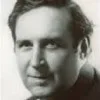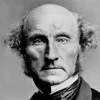Assassination is the extreme form of censorship.
George Bernard Shaw (1856-1950) British playwright and critic
The Shewing-up of Blanco Posnet, “The Rejected Statement, Part 1,” “The Limits to Toleration” (1909)
(Source)
Quotations about:
silencing
Note not all quotations have been tagged, so Search may find additional quotes on this topic.
In this age of censorship I mourn the loss of books that will never be written, I mourn the voices that will be silenced — writers’ voices, teachers’ voices, students’ voices — and all because of fear.
Judy Blume (b. 1938) American writer
“Censorship: A Personal View,” Introduction, Places I Never Meant to Be: Original Stories by Censored Writers (1999) [ed. Blume]
(Source)
And what is an authentic lunatic? He is a man who has preferred to become what is socially understood as mad rather than forfeit a certain superior idea of human honor. In its asylums, society has managed to strangle all those it has wished to rid itself of or defend itself from, because they refused to make themselves accomplices to various flagrant dishonesties. For a lunatic is also a man whom society has not wished to listen to, and whom it is determined to prevent from uttering unbearable truths.
Antonin Artaud (1896-1948) French playwright, actor, director
Van Gogh, the Man Suicided by Society [Le Suicidé de la Société] (1947) [tr. Watson]
(Source)
Alternate translation:And what is an authentic madman? It is a man who preferred to become mad, in the socially accepted sense of the word, rather than forfeit a certain superior idea of human honor. So society has strangled in its asylums all those it wanted to get rid of or protect itself from, because they refused to become its accomplices in certain great nastinesses. For a madman is also a man whom society did not want to hear and whom it wanted to prevent from uttering certain intolerable truths.
To refuse a hearing to an opinion because they are sure that it is false, is to assume that their certainty is the same thing as absolute certainty. All silencing of discussion is an assumption of infallibility.
John Stuart Mill (1806-1873) English philosopher and economist
On Liberty, ch. 2 “Of the Liberty of Thought and Discussion” (1859)
(Source)
First, if any opinion is compelled to silence, that opinion may, for aught we can certainly know, be true. To deny this is to assume our own infallibility.
Secondly, though the silenced opinion be an error, it may, and very commonly does, contain a portion of truth; and since the general or prevailing opinion on any subject is rarely or never the whole truth, it is only by the collision of adverse opinions that the remainder of the truth has any chance of being supplied.
Thirdly, even if the received opinion be not only true, but the whole truth; unless it is suffered to be, and actually is, vigorously and earnestly contested, it will, by most of those who receive it, be held in the manner of a prejudice, with little comprehension or feeling of its rational grounds.
And not only this, but, fourthly, the meaning of the doctrine itself will be in danger of being lost, or enfeebled, and deprived of its vital effect on the character and conduct: the dogma becoming a mere formal profession, inefficacious for good, but cumbering the ground, and preventing the growth of any real and heartfelt conviction, from reason or personal experience.
John Stuart Mill (1806-1873) English philosopher and economist
On Liberty, ch. 2 “Of the Liberty of Thought and Discussion” (1859)
(Source)






